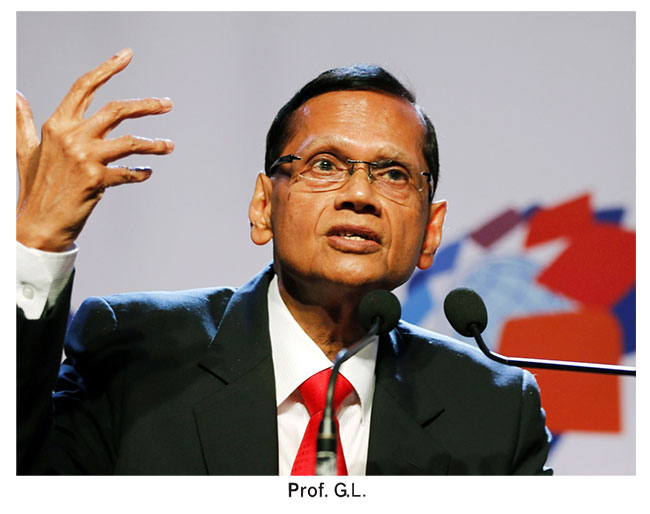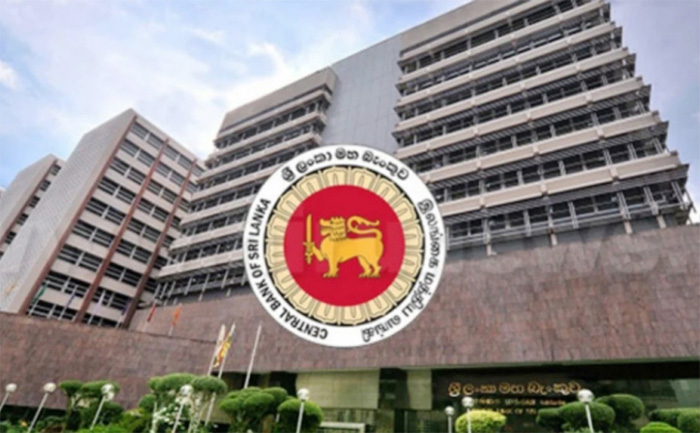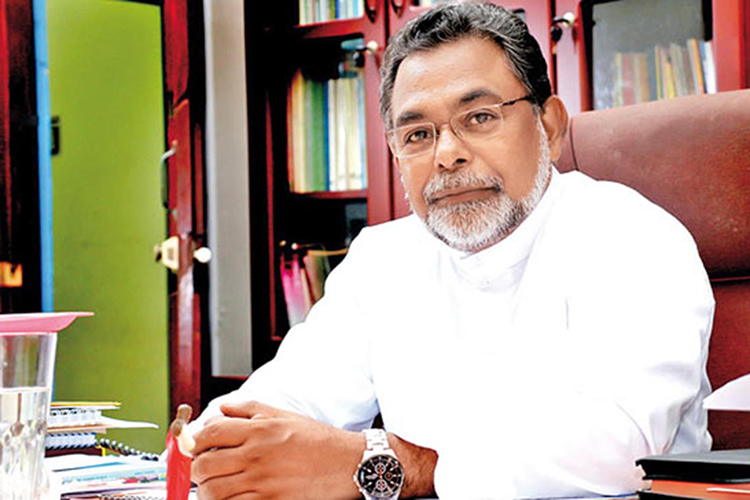News
SL stresses just balance between human rights and national security

49th Geneva session:
…reiterates opposition to evidence gathering mechanism
Foreign Minister Prof. G.L. Peiris has said that as elsewhere in the world, Sri Lanka endeavoured to strike a just balance between human rights and national security when dealing with terrorism.
The Minister said so at the 49th session of the Geneva-based United Nations Human Rights Council yesterday (01)
In his presentation, the academic reiterated Sri Lanka’s strong opposition to the so-called evidence-gathering mechanism, a measure that was strongly opposed by a number of countries. Such initiatives create disharmony both in the domestic and international arenas. It creates obstacles to reconciliation efforts, breeds hatred by reopening past wounds, and polarises society
The following is the text of FM’s statement: ” Sri Lanka is an active participant in the multilateral framework to realise the promotion and protection of human rights.
Fundamental rights are embodied in our Constitution, progressively advanced through our democratically elected organs of government and enforced through our independent judiciary. Despite multiple challenges we have faced from terrorism, we have restored peace, security and the rule of law throughout the country. Our democratic traditions and independent institutions ensure free and fair elections at regular intervals through universal adult franchise. We will further advance the considerable progress we have made in post-conflict recovery and healing. For this, we have put in place domestic institutions for reconciliation, accountability and social justice.
Through this Council, we have completed three mutually beneficial Universal Periodic Reviews, engaged in constructive dialogue with the Treaty Bodies, welcomed Special Procedures Mandate Holders, and held frank and open discussions with domestic and international interlocutors. We have benefitted from the considerable expertise available with the UN on human rights including through its technical cooperation and capacity building programmes. Through the UN country team, we value the ongoing support to our domestic processes on reconciliation and achievement of SDGs.
Through this cooperative interaction, and in line with our domestic framework and international obligations, we continue to ensure the promotion and protection of human rights and social justice for all our citizens, irrespective of ethnic and religious identity and political affiliation.
Despite the economic setbacks due to the Covid 19 pandemic, we continue to ensure our people’s right to development. Sri Lanka has improved its global rank by 7 positions according to the latest SDG Report. We appreciate the contribution made by our civil society partners, through their extensive grass-roots level outreach and expertise.
As a developing Member State of the international community, we brace ourselves to face the further adverse economic consequences of crises, such as the pandemic and the unravelling conflict in Europe, which will impact on our efforts to achieve the SDGs.
We are today in a period of review of the work of the Council. We reflect on whether the Council has been successful in overcoming the credibility gap that led to the downfall of its predecessor Commission.
The multilateral architecture for the implementation of human rights was progressively developed in the last decades. Consensus was forged on key principles which we consider sacrosanct, such as that the promotion and
protection of human rights should be guided by the principles of impartiality, objectivity and non-selectivity, based on the sovereign equality of Member States. UNGA resolution 60/251 and HRC resolutions 5/1 and 5/2 also decided that the working methods of the Council shall be transparent, fair and impartial, and shall enable genuine dialogue.
In March 2021, the Council voted on Resolution 46/1 which was tabled without the consent of Sri Lanka as the country concerned. The consideration of this matter polarized and politicized this forum. In a startling departure from the mandate which the UN General Assembly originally conferred on this Council, operative paragraph 6 of this resolution refers to a so-called evidence-gathering mechanism, a measure that was strongly opposed by a number of countries. Such initiatives create disharmony both in the domestic and international arenas. It creates obstacles to reconciliation efforts, breeds hatred by reopening past wounds, and polarizes society.
Member States have mandated this Council and its Secretariat with a truly extensive array of helpful working methods to assist Governments in the promotion and protection of human rights. Sri Lanka has participated actively and constructively in those aspects of the Council’s work that have been productive and beneficial, and which have helped to ensure that our people live safer, longer, and more dignified lives. We reject those that are punitive, politicized, divisive, unhelpful and initiated due to extraneous reasons.
As elsewhere in the world, we endeavor to strike a just balance between human rights and national security when dealing with terrorism. Sri Lanka is convinced that counter-terrorism legislation must secure and protect the rights of persons subject to investigation detention and trial, and must not restrict democratic freedoms such as the freedom of expression. With these objectives in view, I recently presented a Bill in the Parliament of Sri Lanka which is an initial step in amending the Prevention of Terrorism Act, 43 years after it was promulgated.
We take particular objection to the use of voluntary funding which has the necessary consequence of undermining objectivity and detachment. Against this background, Sri Lanka once again reiterates its view that the evidence gathering mechanism established under OP 6 of resolution 46/1 is unhelpful to the people of Sri Lanka, will polarize Sri Lankan society, and adversely affect economic development, peace and harmony at a challenging time. It is an unproductive drain on Member State resources, at a time of severe financial shortfalls across the entire multilateral system including the High Commissioner’s Office.
On the 4th of March the Council will meet in an interactive dialogue on Sri Lanka. I look forward to sharing with you some thoughts on the written update on Sri Lanka.”
News
CEB engineers raise alarm over power sector stability

A senior electrical engineers attached to the Ceylon Electricity Board (CEB) have warned that unresolved structural and policy issues within the power sector could threaten the long-term stability of the national grid, urging authorities to act swiftly to address mounting technical and administrative concerns.
Speaking on condition of anonymity, they said the electricity network was operating under increasing strain due to delayed infrastructure upgrades, financial constraints, and growing demand.
“The national grid is not something that can be managed casually. It requires systematic planning, preventive maintenance, and timely investment. If these are compromised, the risk to system stability increases,” the engineers said.
They noted that several transmission and substation modernisation projects were behind schedule, while ageing thermal plants continued to shoulder a significant portion of the country’s base load demand.
“Engineers are committed to ensuring an uninterrupted supply. But professional expertise must be respected in decision-making. Technical matters cannot be subjected to short-term political considerations,” the engineers added.
Meanwhile, the powerful Ceylon Electricity Board Engineers’ Union (CEBEU) echoed similar concerns, warning that failure to address long standing professional and structural issues could have serious consequences for the power sector.
In a statement, the CEBEU has said that engineers have repeatedly called for reforms that safeguard the integrity of the utility and ensure that operational decisions remain grounded in technical evaluation.
“The electricity sector is a critical national asset. Any attempt to weaken institutional safeguards or bypass professional consultation will directly impact service reliability and long-term sustainability,” the union said.
The CEBEU has stressed the importance of transparent engagement between policymakers and technical personnel, noting that morale among engineers could be affected if their concerns continue to go unheard.
Industry analysts point out that the power sector plays a central role in Sri Lanka’s economic recovery efforts, particularly as the country seeks to expand industrial activity and attract investment. Stability in electricity supply remains a key determinant of business confidence.
The senior engineer stressed d that the objective of raising concerns is not confrontation but preservation of the grid’s integrity.
“Our responsibility is to the public. Electricity powers hospitals, industries, and homes. Safeguarding the system is a national duty,” he said.
With tensions simmering within the sector, stakeholders say meaningful dialogue between authorities, engineers, and trade unions will be crucial in ensuring that Sri Lanka’s power infrastructure remains resilient in the face of growing challenges.
By Ifham Nizam
News
CB identifies 24 pyramid scams in Sri Lanka

The Central Bank (CBSL) yesterday announced that investigations had identified 24 companies and applications operating prohibited pyramid schemes.
In a public notice issued under Section 83C of the Banking Act, No. 30 of 1988 (as amended), the CBSL said the following entities had been “ascertained and determined as prohibited schemes”: Tiens Lanka Health Care (Pvt) Ltd, Best Life International (Pvt) Ltd, Mark–Wo International (Pvt) Ltd, V M L International (Pvt) Ltd, Global Lifestyle Lanka (Pvt) Ltd, Fast3Cycle International (Pvt) Ltd, Sport Chain App / Sport Chain ZS Society Sri Lanka, OnmaxDT, MTFE App / MTFE SL Group / MTFE Success Lanka / MTFE DSCC Group, Fastwin (Pvt) Ltd, Fruugo Online App / Fruugo Online (Pvt) Ltd, Ride to Three Freedom (Pvt) Ltd, Qnet / Questnet, Era Miracle (Pvt) Ltd and Genesis Business School, Ledger Block, Isimaga International (Pvt) Ltd, Beecoin App and Sunbird Foundation, Windex Trading, The Enrich Life (Pvt) Ltd, Smart Win Entrepreneur (Pvt) Ltd, Net Fore International (Pvt) Ltd / Netrrix, Pro Care (Pvt) Ltd and Shade of Procare (Pvt) Ltd, SGO / sgomine.com and I.C.A.N Advertising (Pvt) Ltd and its affiliates icanonlineadvertising.com, bannercuts.com, bannercuts.lk, bannercuts.net and bannercuts.org
The CBSL said pyramid schemes, also referred to as multi-level marketing or direct selling schemes in certain instances, operate as recruitment-based programmes in which members enlist others into an expanding “downline” structure resembling a chain letter.
Under such arrangements, a portion of the fees paid by new recruits is channelled upwards to earlier participants, known as the “upline”, who are fewer in number.
The Central Bank warned that such schemes are inherently unsustainable, with the vast majority of participants at the lower tiers eventually losing their investments, while only a small number of early entrants are able to recover or profit from the funds contributed by subsequent recruits. It noted that when a pyramid scheme collapses, up to 99 per cent of those in the lower levels risk losing their money.
News
Church urges patience, warns against interference with Easter attacks probe

Director of Communications for the Archdiocese of Colombo, Rev. Fr. Cyril Gamini Fernando, yesterday expressed confidence that ongoing investigations into the 2019 Easter Sunday terror attacks would yield meaningful results and urged the public and all stakeholders to exercise patience and allow the probe to proceed independently.
Addressing a media briefing in Colombo yesterday, Fr. Fernando called on all parties to refrain from interfering with the investigations, warning that any attempt to obstruct the process would amount to a grave injustice to the victims.
He said he believed there was credible evidence to warrant the arrest of military intelligence veteran Maj. Gen. (Retd.) Suresh Sallay.
Referring to the coordinated bombings on April 21, 2019, which targeted churches and hotels and claimed nearly 300 lives, Fr. Fernando described the attacks as a “barbaric” act and a “massacre” that killed worshippers attending Easter services as well as individuals from different religious and ethnic communities.
By Norman Palihawadane
-

 Features5 days ago
Features5 days agoWhy does the state threaten Its people with yet another anti-terror law?
-

 Features5 days ago
Features5 days agoReconciliation, Mood of the Nation and the NPP Government
-

 Features5 days ago
Features5 days agoVictor Melder turns 90: Railwayman and bibliophile extraordinary
-

 Features4 days ago
Features4 days agoLOVEABLE BUT LETHAL: When four-legged stars remind us of a silent killer
-

 Features5 days ago
Features5 days agoVictor, the Friend of the Foreign Press
-

 Latest News6 days ago
Latest News6 days agoNew Zealand meet familiar opponents Pakistan at spin-friendly Premadasa
-

 Latest News6 days ago
Latest News6 days agoECB push back at Pakistan ‘shadow-ban’ reports ahead of Hundred auction
-

 Latest News6 days ago
Latest News6 days agoTariffs ruling is major blow to Trump’s second-term agenda













